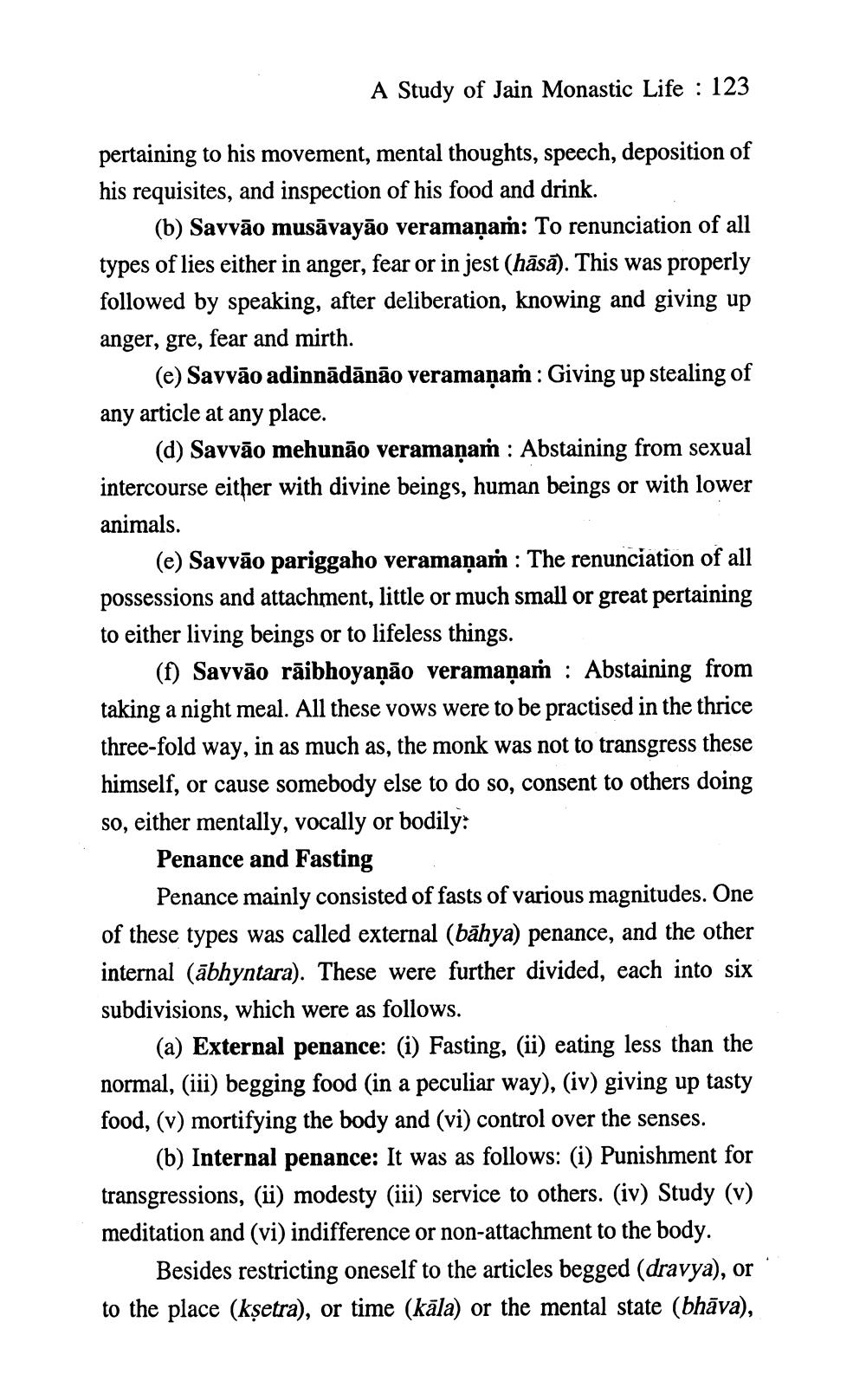________________
A Study of Jain Monastic Life: 123
pertaining to his movement, mental thoughts, speech, deposition of his requisites, and inspection of his food and drink.
(b) Savvão musāvayāo veramaṇam: To renunciation of all types of lies either in anger, fear or in jest (hāsā). This was properly followed by speaking, after deliberation, knowing and giving up anger, gre, fear and mirth.
(e) Savvão adinnādānão veramaṇam: Giving up stealing of any article at any place.
(d) Savvão mehunão veramaṇaṁ : Abstaining from sexual intercourse either with divine beings, human beings or with lower animals.
(e) Savvão pariggaho veramaṇam: The renunciation of all possessions and attachment, little or much small or great pertaining to either living beings or to lifeless things.
(f) Savvão raibhoyaṇão veramaṇam: Abstaining from taking a night meal. All these vows were to be practised in the thrice three-fold way, in as much as, the monk was not to transgress these himself, or cause somebody else to do so, consent to others doing so, either mentally, vocally or bodily:
Penance and Fasting
Penance mainly consisted of fasts of various magnitudes. One of these types was called external (bahya) penance, and the other internal (abhyntara). These were further divided, each into six subdivisions, which were as follows.
(a) External penance: (i) Fasting, (ii) eating less than the normal, (iii) begging food (in a peculiar way), (iv) giving up tasty food, (v) mortifying the body and (vi) control over the senses.
(b) Internal penance: It was as follows: (i) Punishment for transgressions, (ii) modesty (iii) service to others. (iv) Study (v) meditation and (vi) indifference or non-attachment to the body.
Besides restricting oneself to the articles begged (dravya), or to the place (kṣetra), or time (kāla) or the mental state (bhāva),




